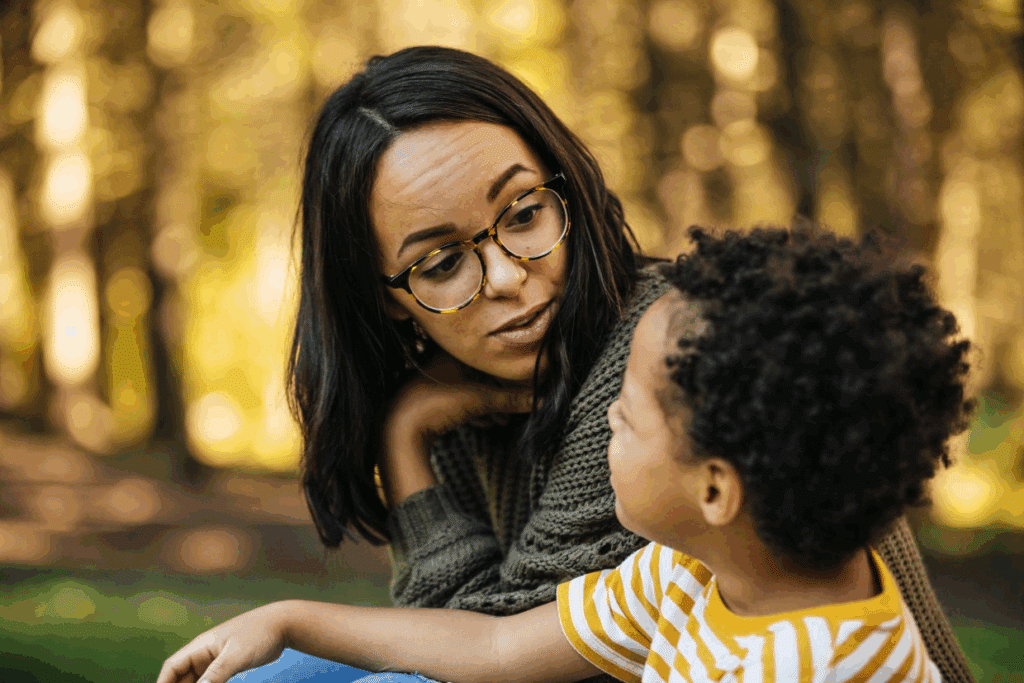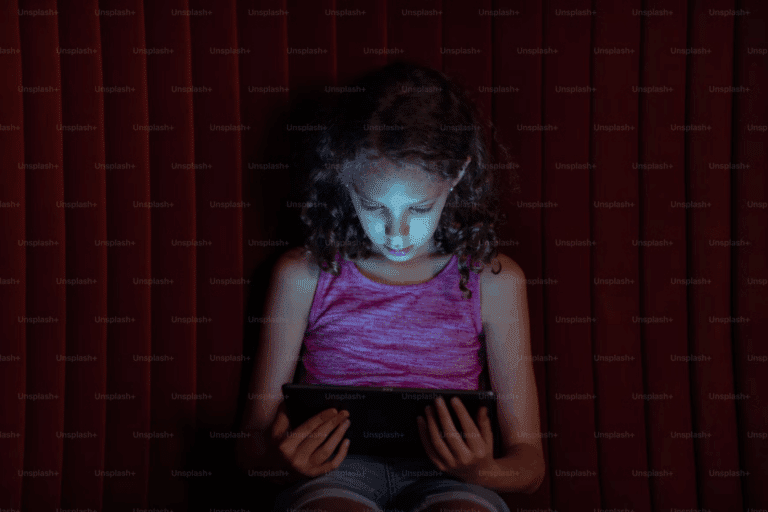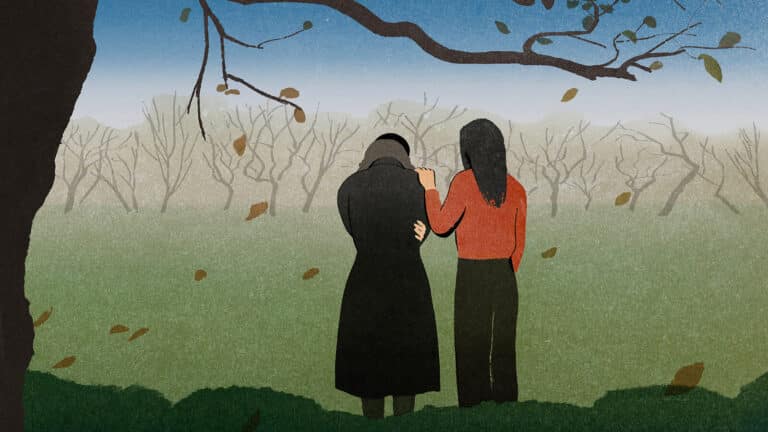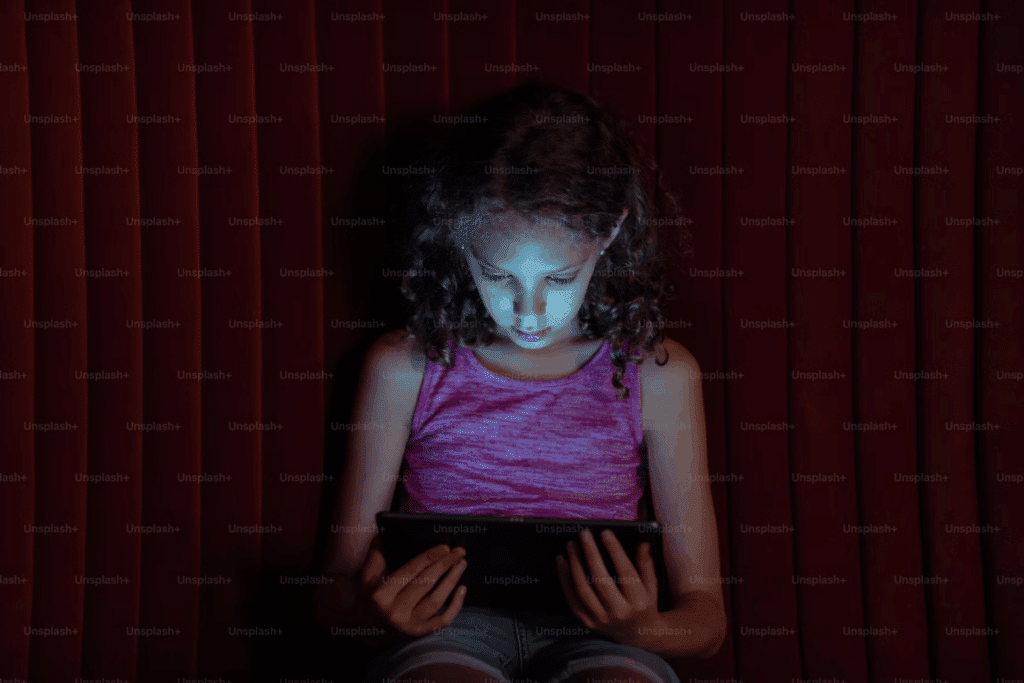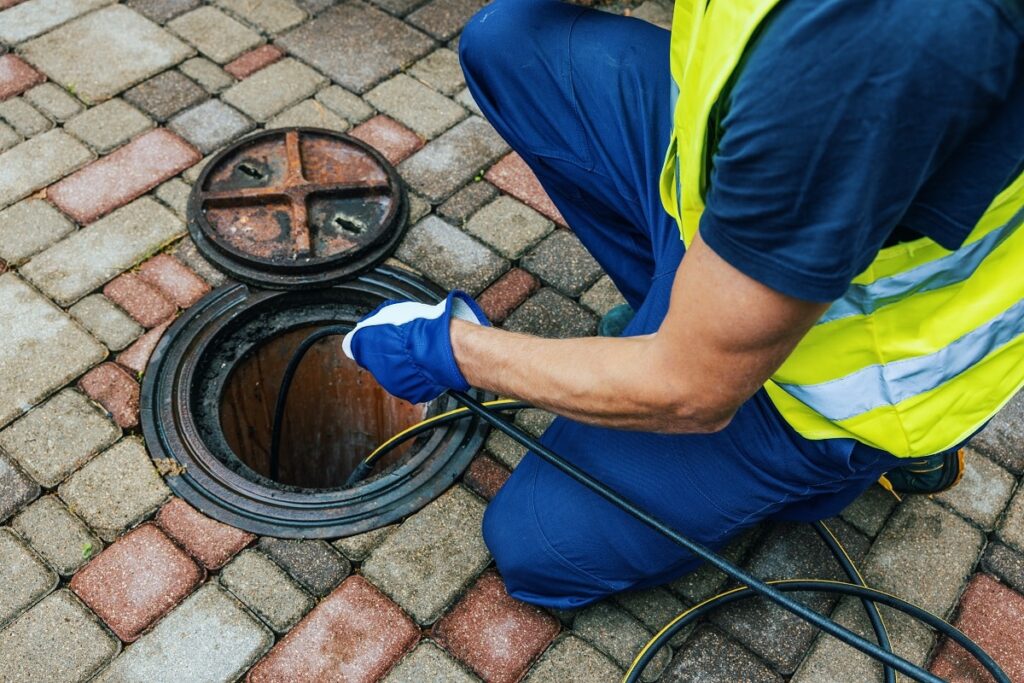“Why sky blue?” We’ve all been there. Your toddler asks you a million questions each day, but when you try to start a conversation, you get one-word answers or blank stares. It can feel impossible to peek into that busy little mind of theirs.
The good news? Asking the right questions can open up a whole new world of chats with your little one.
I’ve collected 67 questions that actually work to get toddlers talking. These aren’t your basic “How was your day?” prompts that lead nowhere.
From silly imagination games to surprising thought-starters, these questions will help you learn what makes your toddler tick.
Why Asking Questions to Toddlers is Crucial for Their Development
Talking with toddlers helps their brains grow in amazing ways. When you ask your little one questions, you do much more than pass time – you help build their mind.
- Builds Language Skills: Questions give toddlers a chance to use new words. Each time they answer, they practice putting thoughts into speech. This back-and-forth talk is how kids learn to speak clearly. The more words they hear from you, the more words they’ll know how to use.
- Grows Thinking Abilities: Good questions make little brains work hard. When you ask “What if” or “How come” questions, your child must think about things in new ways. This kind of thinking helps them solve problems later in life.
- Creates Emotional Understanding: Questions about feelings help toddlers name what’s going on inside them. A child who can say “I feel sad” instead of just crying has taken a big step. This skill helps them deal with big feelings as they grow.
- Strengthens Your Bond: The time you spend asking and listening shows your child they matter. When you truly hear their answers – even the silly ones – you build trust. This close bond gives them the safety to try new things.
- Sparks Imagination: Fun, open-ended questions let toddlers make up stories and dream big. This creative thinking becomes a tool they’ll use their whole life to find new solutions.
Taking time each day to ask good questions is one of the best gifts you can give your toddler.
You don’t need fancy toys or classes – just your attention and some fun questions can help your child grow smart and strong.
Questions to Ask Your Toddler: Fun, Emotional, and Personal Twist
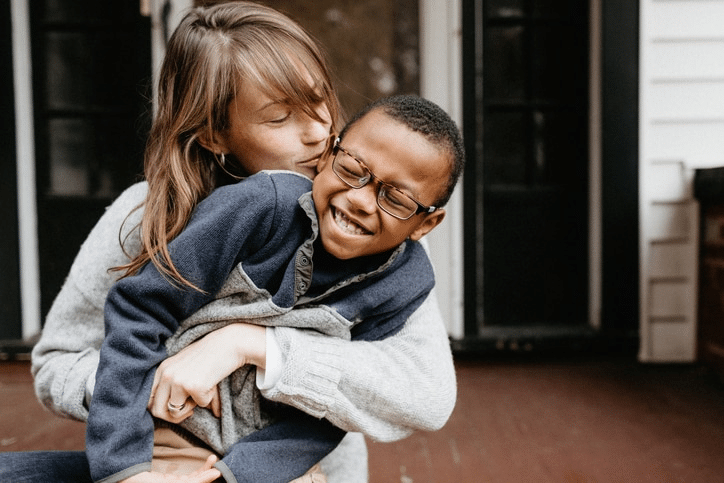
-
What’s your favorite animal?
-
What color is the sky?
-
If you could fly, where would you go?
-
What does the cat say?
-
What’s your favorite toy?
-
What does the dog say?
-
If you could be any animal, which one would you be?
-
What’s your favorite food?
-
What is your favorite book?
-
Where do you want to go on vacation?
-
What is your favorite game to play?
-
What’s the best thing about today?
-
What makes you happy?
-
What do you want to be when you grow up?
-
What’s your favorite song?
-
What’s your favorite thing to do outside?
-
What do you like to do with Mommy or Daddy?
-
What’s your favorite thing to wear?
-
What does it feel like when I hug you?
-
If you could talk to animals, what would you ask them?
-
What would you do if you could be invisible?
-
If you could have any superpower, what would it be?
-
What do you like to draw?
-
If you could meet any character from a story, who would it be?
-
If you could make a new color, what would it look like?
-
If you had a pet dragon, what would you name it?
-
What would you do if you could live in a house made of candy?
-
What’s the silliest thing you can think of?
-
What makes you laugh the most?
-
What would you do if you could jump really high?
-
What would you do if you could build anything in the world?
-
What is something that makes you proud?
-
What do you think happens when we sleep?
-
What’s your favorite thing to eat for breakfast?
-
What makes you feel happy?
-
What makes you feel sad?
-
What do you do when you’re feeling mad?
-
How do you feel when you help others?
-
What do you do when you’re scared?
-
How does your heart feel when you’re excited?
-
What makes you feel proud of yourself?
-
How do you feel when someone gives you a hug?
-
What can you do to make someone smile?
-
What does it feel like when you share with others?
-
What makes you feel safe?
-
How do you feel when you try something new?
-
What makes you laugh?
-
What makes you feel brave?
-
How do you know when someone is feeling sad?
-
What would you do if your friend is upset?
-
How do you feel when you see someone else happy?
-
What do you do when you’re worried about something?
-
What makes you feel calm when you’re upset?
-
How do you feel when you help clean up?
-
What’s something you’re thankful for today?
-
How do you feel when someone says “thank you”?
-
What do you think is the best way to say sorry?
-
How do you feel when you see a friend share their toys?
-
What makes you feel comfortable when you’re feeling unsure?
-
How do you feel when you learn something new?
-
What does it feel like to be loved?
-
How do you show your friends that you care?
-
What do you do when you’re feeling really happy?
-
What makes you feel excited to try something new?
-
How do you feel when you make a mistake?
-
How does it feel when someone believes in you?
-
What does it feel like when you do something kind for someone?
How to Use Questions to Build Emotional Intelligence in Your Toddler
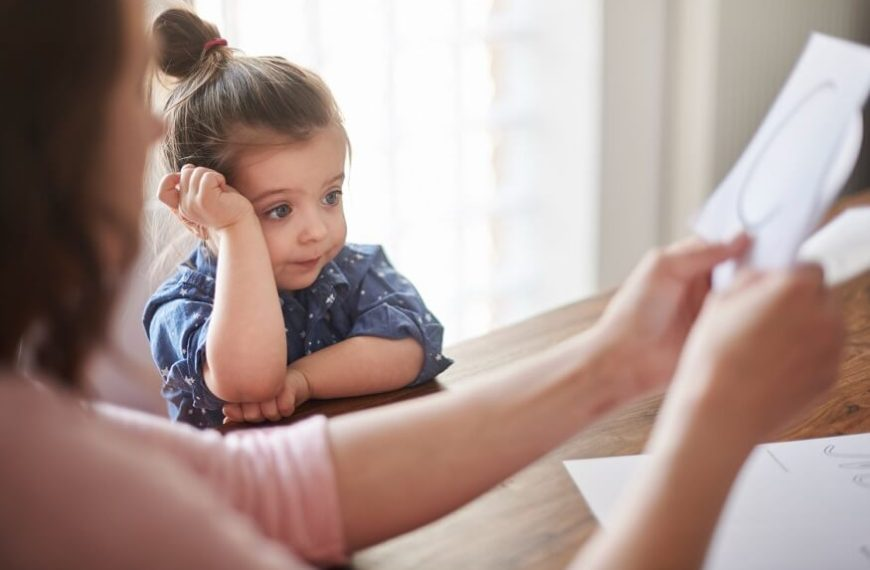
Helping toddlers understand feelings is as important as teaching them the ABCs and 123s.
When kids know about emotions, they get along better with others and feel happier. Here’s how to use questions to build this key skill.
Start With Basic Feeling Words
Ask simple questions about main feelings: “Are you happy right now?” or “Do you feel sad?” This helps toddlers name what they feel. Add more feeling words as they grow: excited, worried, frustrated, proud.
Talk About Your Feelings, Too
Share your own feelings in simple ways: “I feel happy when we read together,” or “I was sad when I dropped my ice cream.” This shows them it’s normal and good to talk about feelings.
Ask About Story Characters
When reading books, ask: “How do you think the bear feels?” or “Why is the boy crying?” This helps them spot feelings in others. Books with clear face pictures work best for this.
Wonder About Others
At the park or store, ask: “That baby is crying. How do you think she feels?” or “That boy is jumping up and down. Is he sad or happy?” This builds caring for how others feel.
Connect Actions and Feelings
Ask questions that link what they do with how others feel: “When you shared your toy, how did your friend look?” or “If we take all the blocks, how will the other kids feel?” This helps them see how they affect others.
Use Feeling Check-ins
Make it a habit to ask: “How is your heart feeling today?” You can use a feelings chart with faces to help them point to their answer if words are hard.
Keep these talks short, fun, and part of everyday life. A few good questions each day will help your toddler grow into a person who understands both their own feelings and the feelings of others.
Tips for Making Conversations with Toddlers More Engaging
Engage toddlers in meaningful conversations by using simple language, asking open-ended questions, and incorporating play.
These strategies encourage language development, emotional expression and create a fun, interactive experience.
- Use simple language and clear words.
- Ask open-ended questions.
- Get on their level (kneel or sit to make eye contact).
- Use an enthusiastic tone.
- Let them lead the conversation.
- Use visual cues like pointing to objects or pictures.
- Repeat words and phrases to reinforce learning.
- Incorporate play into conversations.
- Validate their responses and show interest.
- Use gestures and facial expressions to support words.
- Give them time to respond without rushing.
- Encourage their imagination with creative questions.
- Celebrate their ideas, even the silly ones.
The Bottom Line
Questions are powerful tools that open doors to your toddler’s mind. The 67 questions we’ve shared go beyond simple conversations – they build language skills, boost emotional awareness, and create lasting bonds.
Remember that how you ask matters as much as what you ask. Use a playful tone, get down to their eye level, and truly listen to their answers, no matter how surprising they might be.
Start with just a few questions each day. Notice which ones light up your child’s face and lead to the best talks. Then, make question time a regular part of your routine – during meals, bath time, or before bed.
What’s your toddler’s favorite question? Share your funny or thoughtful responses in the comments below!

